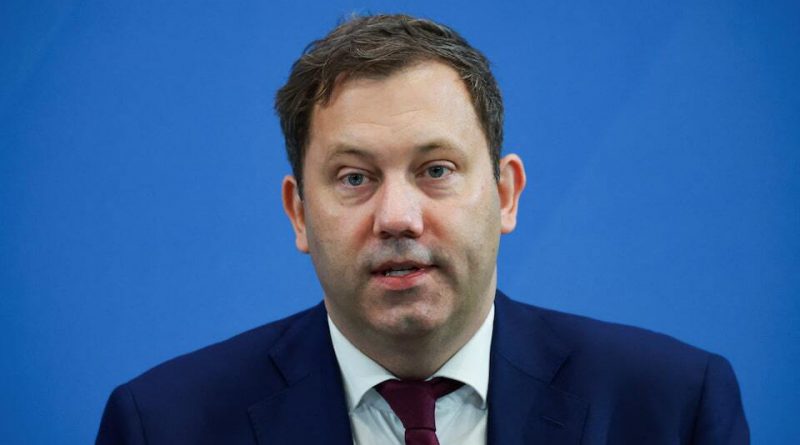German Finance Minister and Bundesbank President Endorse Merz’s Vision for a Unified European Stock Market
Germany’s top financial leaders rally behind Chancellor Friedrich Merz’s call for a European stock exchange — a bold step toward strengthening Europe’s financial unity, global competitiveness, and investment potential.
In a strong display of economic alignment, German Finance Minister Lars Klingbeil and Bundesbank President Joachim Nagel have thrown their full support behind Chancellor Friedrich Merz’s proposal to create a European stock exchange.
This initiative, aimed at boosting capital mobility, investment, and financial resilience across the continent, marks a pivotal moment in Europe’s journey toward a fully integrated capital markets union.
The proposal is being hailed as a transformative step that could reshape Europe’s financial landscape, allowing its businesses to compete more effectively on the global stage.
By championing a unified stock market, Germany’s leadership is not only advancing the continent’s financial strength but also underscoring its commitment to long-term economic growth and investor confidence.
Speaking on the sidelines of the International Monetary Fund (IMF) meetings in Washington, Klingbeil emphasized that the creation of a European stock exchange would be a “sensible and strategic step” in advancing the EU’s capital markets union.
The concept aims to harmonize capital flows within Europe, making it easier for businesses — from startups to major corporations — to access investment and funding opportunities across borders.
Klingbeil noted that the proposal “deserves full support,” adding that it aligns perfectly with Europe’s ongoing mission to deepen economic integration and enhance competitiveness in a rapidly changing financial environment.
By removing market barriers and improving access to funding, a pan-European stock exchange could become a catalyst for innovation, job creation, and sustainable growth.
Bundesbank President Joachim Nagel echoed Klingbeil’s enthusiasm, describing the proposal as “an intriguing and forward-looking idea.” He said that such a move would send a strong signal of confidence in Europe as a global business hub.
“I think it’s an interesting idea, an inspiring proposal,” Nagel said, adding that it would reinforce Europe’s image as a stable and attractive investment destination.
He also noted that while the ultimate decision lies with market participants and private enterprises, the support of political and financial institutions provides valuable momentum to make it a reality.
By aligning financial policies with broader European goals, the proposed exchange could help consolidate the region’s diverse financial centers — from Frankfurt to Paris and Milan — into a cohesive powerhouse capable of rivaling the dominance of New York, London, and Hong Kong.
Beyond the stock market initiative, Klingbeil and Nagel also addressed Europe’s approach to banking regulation. While the U.S. has recently pushed for deregulation in its banking sector, Germany’s finance minister was firm in his belief that Europe must maintain strong safeguards while remaining flexible where bureaucracy hinders efficiency.
“We certainly won’t go along in Germany and Europe with this deregulation craze that now seems to be developing in the United States,” Klingbeil said. “But it’s also clear that we must look closely at where excessive bureaucracy exists, including in the banking sector.”
Nagel agreed, stressing the need for “great caution” in any move toward deregulation. He reminded that Europe has learned crucial lessons from the 2008 global financial crisis, and the robust supervisory mechanisms built since then have made European banks far more stable and resilient.
“It would be downright absurd to give that up in any way,” he said. His comments underline Germany’s balanced approach — promoting growth and innovation while preserving the financial discipline that has protected European economies for over a decade.
The idea of a European stock exchange resonates strongly with Europe’s broader ambitions to become a leading financial and technological force. A unified exchange could enable more efficient capital formation, attract global investors, and reduce dependence on foreign financial centers.
Furthermore, such an initiative would empower European companies — particularly small and medium-sized enterprises (SMEs) — to scale more rapidly by tapping into a deeper pool of investors.
It would also create new opportunities for sustainable finance, allowing Europe to channel more investment into green technologies, digital transformation, and social innovation.
By building this foundation for a truly integrated financial system, Europe would enhance its global competitiveness and assert its leadership in shaping the future of responsible capitalism.
The unified support from Germany’s leading financial figures marks a historic moment of consensus. It demonstrates that Europe’s most influential economy is not just committed to its own stability but to the collective progress of the continent.
Chancellor Merz’s proposal, backed by Klingbeil and Nagel, embodies a shared belief that Europe’s strength lies in cooperation, innovation, and solidarity.
By moving toward a European stock exchange, the continent is signaling to the world that it is ready to lead — not follow — in the next era of global finance.
As Europe looks ahead, this proposal could become one of the most significant milestones in building a modern, resilient, and inclusive financial future for generations to come.



